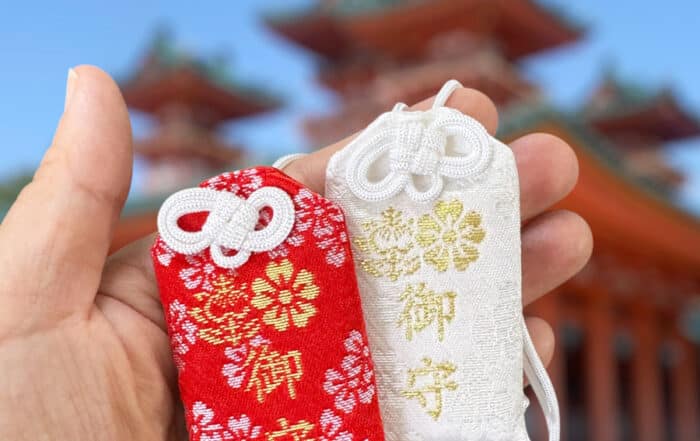Calabash
In Japan, the calabash, often referred to as “hulu” (ひゅうる or 瓢箪), is considered a symbol of good luck and protection. The shape of the calabash is reminiscent of a gourd or bottle, and it has traditional associations with warding off evil spirits, illness, and misfortune.
Here are a few reasons why the calabash is considered lucky in Japan:
- Warding off Evil: The calabash is believed to have the power to ward off evil spirits and negative energy. It is often used as a protective charm in homes or carried as a talisman.
- Health and Longevity: Due to its association with protection, the calabash is also seen as a symbol of good health and longevity. It is often depicted with the Shichifukujin, the Seven Lucky Gods, who bring various forms of good fortune.
- Agricultural Symbolism: In Japanese folklore, the calabash is associated with agricultural abundance and a bountiful harvest. Its presence is thought to bring prosperity to the land and the people.
- Talisman for Travelers: The calabash is sometimes considered a good luck charm for travelers. It is believed to protect individuals from accidents and ensure a safe journey.
The use of the calabash as a lucky symbol can vary in different cultures and contexts, but in Japan, it is generally viewed positively and associated with well-being and protection from harm.
QUICK MENU
RECENT POSTS
Sayuri Koi2024-11-24T22:48:34+07:00
Discovering Gotokuji omamori : Uncovering the Mysteries and Magic of the Lucky Cat Temple
Sayuri Koi2024-11-24T22:48:34+07:00Uncategorized|
TAGS
5 yen
amulet
Cat Luck
charm
Charms for Travelers
chusonji
fushimi
good fortune cat
hiraizumi
inari
japanese bracelet
japanese good luck bracelet
Japanese love amulet
japanese lucky gods
Japanese Omamori
kami
kitsune
Kiyomizu
Kyoto
love
love charm from Kyoto
love omamori
Luck Bracelet
luck coin
lucky
Lucky bracelet
Lucky CAT
Lucky charm
lucky coin
Maneki Neko
nonomiya
omamori
Omamori Charms
omamori for love
shrine
talisman
Japanese-Omamori® is an Omamori Online store established since 2001. sells Omamori and other products from Japan locate in Thailand. We were inspired by ecotourism and admired the uniqueness of Japan.
Japanese-Omamori®は2001年に設立されたお守りオンラインストアです。日本からタイにあるお守りやその他の商品を販売しています。私たちはエコツーリズムに触発され、日本の独自性に感心しました。
© Copyright 2012 - 2025
Japanese-Omamori.com
Best Omamori Online Shop
All Rights Reserved













